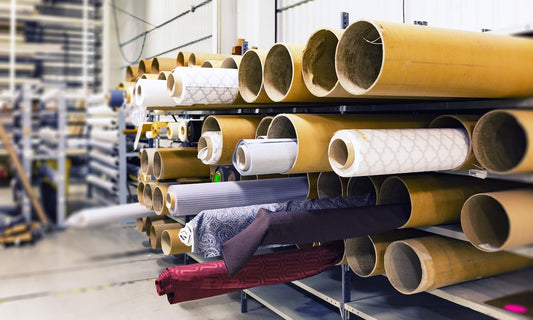Whenever you find yourself at the crossroads of starting a business or reinventing an existing one, the debate often boils down to the age-old question: "Wholesale vs. Retail?" Each approach has its unique merits and challenges. Understanding the core differences allows you to make an informed decision tailored to your business goals. So, let's buckle up and navigate this intriguing journey!
Key Differences
The primary difference between wholesale and retail is the volume of goods involved and the market they target. While wholesalers sell products in bulk to businesses, retailers sell individual items to the end consumer. Here's an in-depth look into their distinctive attributes:
The volume of Sales
- Wholesale: Wholesalers, as the name suggests, deal in volume. They purchase goods directly from manufacturers and sell them in large quantities to retailers or other businesses.
- Retail: Retailers operate on a much smaller scale, focusing on selling individual items or small amounts directly to the final consumer.
Pricing Strategy
- Wholesale: Given the bulk nature of their transactions, wholesalers tend to have a lower per-unit cost. This allows them to offer competitive prices to their clients while still making a decent profit.
- Retail: Retailers mark up the prices to cover their operational costs and earn a profit. This is why consumers often find retail prices higher than wholesale prices.
Target Audience
- Wholesale: Wholesalers deal with businesses, meaning their target audience includes retailers, other wholesalers, or industries.
- Retail: Retailers cater directly to consumers. Their marketing strategies, store designs, and other business aspects are consumer-centric.
Marketing and Advertising
- Wholesale: Wholesalers generally don't invest heavily in advertising. Their clientele is specific, and they rely on B2B relationships, trade shows, and industry networks.
- Retail: Retailers spend considerably on advertising and marketing to attract end consumers. From seasonal sales to loyalty programs, they use a variety of strategies to boost footfall and online traffic.
Product Range
- Wholesale: Wholesalers often have a limited product range but in vast quantities. They focus on supplying what's in demand among retailers and businesses.
- Retail: Retailers offer diverse products to cater to consumer needs. From different brands to various categories, they provide multiple choices to shoppers.
Business Relationships
- Wholesale: Wholesalers establish long-term relationships with businesses. These relationships are built on trust, reliability, and consistent delivery.
- Retail: Retailers interact with end consumers. While they aim to foster loyalty, their relationships are transactional and can be short-term.
Location
- Wholesale: Wholesalers often operate from areas where property rent or prices are lower since they don't rely on walk-in customers.
- Retail: Retailers choose prime locations in malls or famous streets to attract maximum footfall.
FAQs
What are the advantages of wholesale?
Wholesale offers the advantage of bulk sales, leading to higher total profits even if the profit margin per unit is low. It also reduces the risk associated with holding a vast inventory.
Why might retail be a better option for some businesses?
Retail is consumer-centric and allows businesses to have direct interaction with their end-users. It's ideal for those who have a niche product or cater to a specific market segment.
How do wholesalers source their products?
Wholesalers usually source their products directly from manufacturers or large distributors. They focus on getting products at the lowest possible cost to maximize their profit margins.
Is online retail a threat to traditional retail businesses?
While online retail has seen a surge, traditional retail still holds its ground, especially for products where consumers prefer a tactile experience. The two can coexist and even complement each other.
Can a business operate both as a wholesaler and retailer?
Absolutely! Many businesses adopt a hybrid model where they wholesale some of their products and retail others, maximizing their market reach.
Which has a higher profit margin, wholesale or retail?
Retail generally has higher profit margins per unit since they mark up prices. However, wholesalers can make up for this with the sheer sales volume.
Final Thoughts
There's no definitive winner in the "Wholesale vs. Retail" battle. Both have their unique advantages and challenges. Your decision should hinge on your business objectives, capital availability, and market research. Whether you're looking to dive into the vast ocean of wholesale or the dynamic world of retail, understanding their nuances is crucial. Remember, it's not just about selling; it's about creating value, building relationships, and carving a niche in the bustling market!


